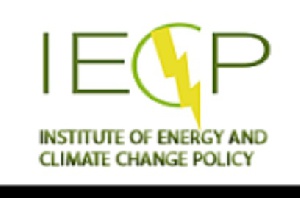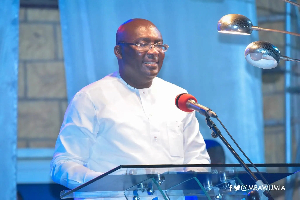Institute of Energy and Climate Policy (IECP) is urging the Energy Ministry to create environment for more affordable solar lease in Ghana’s residential electricity sector.
According IECP, this move will bring a great deal of relief to Ghanaians in general and the power sector as whole, since the responsibility of maintenance or repairs of the solar panel system will be shifted to the provider, and also ensure a reduction in electricity.
In a press release dated January 24, 2017 andsigned by the Director of Research and Policy (IECP) Dr. Philip Kofi Adom, the consumer can go for outright purchase of the technology which consequently would imply zero electricity tariffs for the remaining life of the technology.
“A structural shift in the energy mix towards more renewables provides the best alternative source. Even though the Renewable Energy Law targets 10% renewables in total electricity generation mix by 2020, the target is less ambitious to overturn things in the power sector”
The institute also questions the sector minister designate, Boakye Agyarko’s announcement of the immediate abolishment of the energy sector levy.
“we find the decision of immediate abolishment of the energy sector levy disturbing. In any case, why do you abandon a tax which is not nuisance”?
FULL PRESS RELEASE
To the Energy Ministry: Create the Environment for NO-MONEY-DOWN Solar
Lease in the Residential Sector
Electrical energy constitutes the third energy source after wood fuel and petroleum in the country.
Despite the relatively small share of electricity both in supply and demand in total energy supply and
demand mix, small disruptions in the electricity sector causes serious economic challenges to the
country. In fact, the electricity sector can be described as the ant that kills the elephant in us. The major
reason is that, largely economic activities run on electrical energy.
Solving the electrical problem has involved a lot of supply-side interventions, many of which have received negative responses from the public due to the non-prudent nature of the contract arrangements of some of these interventions. In addition, failure of our political institutions has created a very fragile financial electricity sector. Current total debt (net) according to Minister of Energy now
hovers around $3.3billion; a sum which has made operational activities in the generation sector very difficult.
The big question still remains how we deal with this huge debt the most efficient way such that electricity still becomes affordable and available. Even though some proposals have been put
forward by the new energy minister such as raising private equity, it still remains to be seen how effective this may turn out given that there is a firm intention to erode the energy sector levy first (in an
attempt to bring relief to consumers). While we still wait for how successful this new proposal could be, it is only prudent that you do not abandon completely a cure to a problem when you have not
successfully found a reliable alternative. Therefore, we find the decision of immediate abolishment of the energy sector levy disturbing. In any case, why do you abandon a tax which is not nuisance?
These problems in the supply-side are as a result of the energy mix in the electricity sector.
Total electrical energy is mainly sourced from hydro and thermal (fuelled by light crude oil and gas). It is important to state that in as much as we try to stabilize the situation in the electricity via dependence
on hydro, LCOs and gas, the high volatility/uncertainty and politics that characterise global oil and gas markets imply that, in the long-term, the current energy mix in the electricity sector may not be very
sustainable.
A structural shift in the energy mix towards more renewables provides the best alternative source. Even though the Renewable Energy Law targets 10% renewables in total electricity generation mix by 2020,
the target is less ambitious to overturn things in the power sector. Before, the industrial sector constituted the major consumer of electrical energy and still remains so. However, there is a serious
catching-up from the residential sector. In 2000, for example, total industrial electricity consumption was in excess of residential electricity consumption by 2,827GWh.
This reduced significantly to 189GWh in 2004 but picked up to 694GWh in 2008 and 1,350GWh in 2012. By 2013, the industryresidential consumption gap had reduced to 996GWh. This growth in residential demand means we can make important strides in the electricity sector with the right kind of policies.
It comes as a good news to consumers who sign unto instead if a policy makes it possible for them to
source cheap power elsewhere and not worry about the fragility in the national grid. Such a policy
would provide huge relief to consumers in terms of affordability and accessibility, as well as reduce the
NEWS RELEASE
pressure on the national grid. Solar roof panels are the technology to do the trick. However, there are two major serious consumer concerns with this technology. First, is the cost of acquisition, and second,
is the maintenance and repair cost. Creating the environment for no-money-down solar lease in Ghana’s residential electricity sector will bring a great deal of relief to Ghanaians in general and the power sector as whole.
The no-money-down solar lease requires little or no money down; shifts the
responsibility of maintenance or repairs of the solar panel system to the provider, and ensures a reduction in electricity tariffs since consumers who sign onto the contract are locked in a fixed rate fee.
In addition, overtime, the consumer can go for outright purchase of the technology which consequently would imply zero electricity tariffs for the remaining life of the technology.
Signed:
Dr. Philip Kofi Adom
Director of Research and Policy (IECP)
Contact: 0246763661 email:p.adom@iecpghana.org
Business News of Wednesday, 25 January 2017
Source: www.ghanaweb.com

















